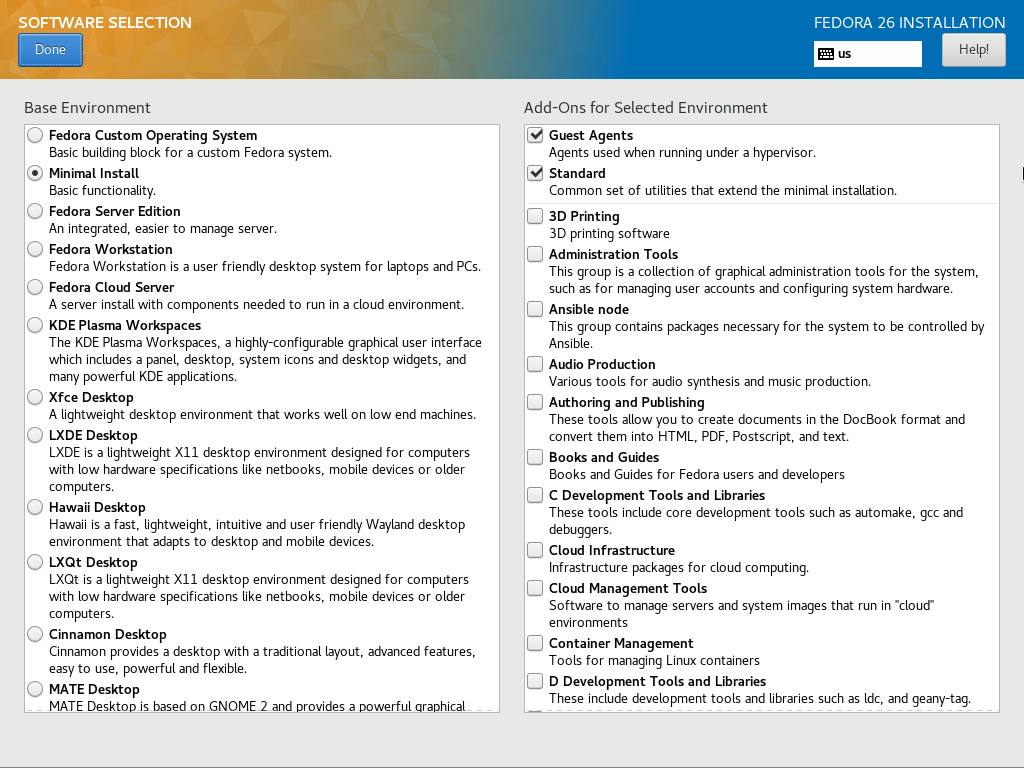Recently I got into an online argument — surprise, I know! — over the Controlled Substances Act and the extent of Congress’s interstate and international commerce regulatory power. At the end, one of my opponents brought up “legislating from the bench”:
That’s part of the problem. We’re no longer governed by Constitutional Law, but by “Case Law”. It’s a travesty. Judges with agendas have done some pretty bad things in the past that people just except as Law.
Just look at the loons trying to legislate from the bench re: Trump’s Immigration halt from six countries. You never heard a fucking peep when the messiah Barry did the exact same thing, yet activist judges tried to overturn a decision by the POTUS, who IS granted this power, because he had an R instead of a D after his name.
When we became a nation of Men instead of a nation of Laws (re: Hitlery/Petraeus what a difference there!) we sealed our own fate.
We will go the way of every Republic before us.
We have one last hope.
Article V.
Now the notion that judges “legislate from the bench” shows a fundamental disconnect with how the judiciary works. It’s been a right-wing talking point for years. I remember Sarah Palin mentioning it during her Vice President nomination acceptance speech in 2008.
The idea warrants exploration, especially as I’ve yet to see an article clearly outlining why the concept exists — the perception leading to it — and why the concept is wrong. I’ll be focusing primarily on the Federal judiciary here for simplicity, but most of what I say will still apply to the States.
What is the judiciary’s role?
Article III, Section 2 of the Constitution lays out the role and power of the Federal judiciary:
The judicial Power shall extend to all Cases, in Law and Equity, arising under this Constitution, the Laws of the United States, and Treaties made, or which shall be made, under their Authority;-to all Cases affecting Ambassadors, other public ministers and Consuls;-to all Cases of admiralty and maritime Jurisdiction;-to Controversies to which the United States shall be a Party;-to Controversies between two or more States;-between a State and Citizens of another State;-between Citizens of different States;-between Citizens of the same State claiming Lands under Grants of different States, and between a State, or the Citizens thereof, and foreign States, Citizens or Subjects.
With clarification from the Eleventh Amendment:
The Judicial power of the United States shall not be construed to extend to any suit in law or equity, commenced or prosecuted against one of the United States by Citizens of another State, or by Citizens or Subjects of any Foreign State.
So in short, the role of the judiciary is to act, largely, as an arbitrator for disputes. Listen to claims, hear evidence, and determine the proper outcome given the law, along with guidance from higher Courts. The outcome includes not just ruling in a side’s favor, but also determining the proper remedy for the circumstances.
That last item is key, as generally the Courts are there to determine how to resolve a dispute, and issue orders pursuant thereto, not merely rule in one side’s favor.
“Stop doing that”
Let’s take a simple case of a contract breach. Alice and Bob have entered into a contract, and Bob doesn’t uphold his end of the bargain, whatever the reason. Alice takes Bob to Court over the matter after failing to resolve the matter outside Court.
In her initial complaint, Alice will lay out the facts of the matter, including but not limited to:
- the contract
- the specifics of Bob’s obligations
- what obligations Bob has fulfilled
- what obligations Bob has yet to fulfill or refused to fulfill
Alice will also request a specific remedy. Likely she’ll demand the Court order the remaining obligations fulfilled, provided that can still occur. Otherwise she may request reimbursement or compensation for any losses and return of any items.
After ruling in Alice’s favor, the Court will address the remedy Alice seeks. Is the remedy allowable under the law? If not, the Court will grant as much of it that is. If none of it is allowable, the Court will grant whatever allowable remedy that, in the presiding judge’s opinion, best resolves the matter.
The facts of the contract and execution also determine whether the requested remedy is allowable and reasonable. For example if Alice tried to request compensation in excess of any incurred loss, the Court will limit the remedy to her actual loss unless the circumstances warrant punitive damages — which a simple contract breach case would not warrant such. When the Court orders one party to pay money to the other, this is called, obviously, monetary relief.
Then there’s injunctive relief. Injunctive relief means, in short, an order by the Court to the losing party to do something, or to refrain from doing something. With a contract breach, the Court will order the losing party to uphold their end of the bargain. If such is not possible, the Court will usually substitute monetary relief and other injunctive relief that best resolves the matter.
And it doesn’t matter if the dispute is between a private party and the government — be it local, State, or Federal, or any government agency therein. The difference is merely the nature of the complaint. When the government is a party to a lawsuit, it’s generally to challenge a standing policy while also pressing the Court to grant a particular remedy. Such as the complaint that initiated the lawsuit against California Proposition 8. The Court will still determine the proper outcome based on the facts and evidence, and prescribe a remedy based on the complaint, facts, and remedy sought by the complainant if the case is ruled in their favor.
The Court can order the government to either do something, such as issue a marriage license to a same-sex couple, or not do something, such as refrain from enforcement of a particular law against a particular person or persons. In some circumstances, a Court order is required before the government can do something, such as granting a marriage license to a minor, provided such is allowable under the law.
On the criminal law side, it’s similar concepts, different specifics. A person convicted of a crime will be ordered by the Court to enter the custody of the Department of Corrections for incarceration or execution. If they are acquitted, the defendant is immediately released from the government’s custody, and the government is forever enjoined from prosecuting the same or similar charges against the acquitted person.
And then there’s the appeals process.
Appeals
Absent specific rules to the contrary, and specifically excluding criminal acquittals, any decision made by a Court is eligible for appeal.
Appellate Courts don’t write policy. They write guidance for how certain policy questions and even specific statutes should be interpreted against the Constitution and other precedent.
When the Supreme Court of the United States or any lower Court declares a law, policy, or procedure to be unconstitutional, the result of that declaration depends on the cases in the lower Courts. But the result has no direct or immediate impact outside the judiciary. Contrary to the popular belief, the Supreme Court of the United States declaring a law or policy to be unconstitutional is not a policy declaration. I said such in an article I wrote discussing what “unconstitutional” actually means:
Basically it all comes down to this: whether a law is enforced is on the judicial and executive branches. Whether the law exists is up to the legislature. Declaring a law “unconstitutional” just means it cannot be enforced. But the Courts in the United States do not have the authority to order the legislature to repeal a law and, to the best of my knowledge, have never done so.
Basically when a statute or policy is declared unconstitutional, whether in its entirety or when applied to a particular circumstance, no individual or government can use it in a Court claim. That is all it means. Attempting to do so will result in the claim being nullified, with the Court saying, in effect, that said law or policy has no power within the Court. The effect of that nullification on the rest of the claim depends on the case in question.
But this still doesn’t answer the question of why Republicans claim the Supreme Court and lower Court judges “legislate from the bench”? There’s actually a remarkably simple answer to this. And you need not look any further than… warning labels.
Warning labels and “legislating from the bench”
Wait, warning labels? What do warning labels have to do with this discussion? Quite simply, a lot. And for good measure, let’s add recalls to this as well.
Most warning labels and disclaimers on packages are the result of someone suing some company for some reason. Businesses watch Court cases very closely when the lawsuit is about something similar to a product or service they offer. Liability insurance companies also watch Court cases very closely.
And more importantly they look for ways to avoid lawsuits to begin with. The warning labels have been a comedic target for decades. Bill Engvall’s Here’s Your Sign from 1996 comes to mind quite well on that when he goes through some warning labels and disclaimers he’s seen. You can probably also find websites reproducing absurd warning labels as well.
Here’s the thing about those labels: no Court has mandated them. Instead they were devised by legal departments as a way of skirting liability on something by giving advance notice of a known or potential danger from the product’s use. They have successfully allowed companies to evade liability through the Courts, so their use has grown. And each new product liability lawsuit gives way for a new warning label.
The rise in warning labels grew from the rise in product liability lawsuits, fueled by a steady stream of injury lawyers looking for cases to make a name and comfortable living for themselves.
The same can be said for lawsuits in general. The verdicts in lawsuits, in particular high profile lawsuits, send signals throughout society.
Let’s go to Obergefell v. Hodges, 576 US ___ (2016). The Supreme Court declaring laws prohibiting same sex marriage to be unconstitutional was an instant signal to the rest of the United States. It wasn’t “you must change your laws”. No order was given to any State in the Obergefell decision. And the Supreme Court has no authority to dictate to the legislature what bills they must pass or repeal.
Instead the decision caused a widespread change in public policy for the same reason we have warning labels: to avoid lawsuits. Obergefell basically guarantees that any State who tries to enforce a law barring same sex marriage will lose in Court. And that guarantee would have invited lawsuits against States that refused to change their policies. Instead the outcome of the lawsuit, minus Kim Davis, was widespread changes to State and local policies to allow for same-sex marriages to evade the potential for a lawsuit.
Legislatures are generally free to enact whatever laws they want. To even be outright tyrannical to their constituents if they desire. Their constitutions and the Constitution of the United States be damned. Whether a law is enforced falls immediately on the Executive Branch. So the Executive Branch can outright refuse to enforce any laws it deems to be unconstitutional. But if the Executive Branch enforces the tyrannical policies and laws, they still have to take the matter through the Courts. As the Courts are the ultimate arbiter on whether certain policies will be enforced.
It’s why the ACLU need only write a letter to a school district or city government outlining previous Court precedent with regard to public religious displays, especially those in public schools. Litigation is costly. And in the case of Dover, Pennsylvania, in 2005, it cost the school board their jobs when they invited a costly lawsuit by adopting the controversial “intelligent design” position.
Indeed the history of that case, Kitzmiller v. Dover, 400 F. Supp. 2d 707 (M.D. Pa. 2005), shows quite clearly how outcomes in lawsuits and higher Court decisions has an impact beyond the immediate case at hand.
The seminal book on “intelligent design” is called Of Pandas and People. It had been in the works for quite a while prior to its initial publication in 1989. And original drafts used the words “creationist” and “creationism”.
Edwards v. Aguillard, 482 US 578 (1987), at the Supreme Court of the United States declared as a violation of the First Amendment an attempt teach creationism in public schools, invalidating a Louisiana policy. In response, the authors manufactured the idea of “intelligent design” as a replacement for “creationism”, and updated the drafts accordingly. The new concept, though, was in name only. Kind of how “toilet paper” and “bathroom tissue” refer to the same thing. Such was recognized by the Court:
The proper application of both the endorsement and Lemon tests to the facts of this case makes it abundantly clear that the [Dover, Pennsylvania, School Board’s] ID Policy violates the Establishment Clause. In making this determination, we have addressed the seminal question of whether ID is science. We have concluded that it is not, and moreover that ID cannot uncouple itself from its creationist, and thus religious, antecedents.
And the lawsuit and forthcoming thorough rebuke of “intelligent design” at the Federal Court by a Republican-appointed judge prompted creationists to change their tactics yet again. Intelligent design was renamed “sudden emergence” according to the latest version of Of Pandas and People called The Design of Life. Another change in name only. Though the name itself doesn’t appear to have reached widespread adoption, likely due to the rebuke from the Federal Court.
And in light of Kitzmiller, pulling from Edwards, no public school or school board in their right mind would consider bringing that book and the “sudden emergence” concept into a public school, or even the prior “intelligent design” concept. Doing so would invite a costly lawsuit they’d be guaranteed to lose.
Criminal laws and criminal Court procedures are similar. For example in Ring v. Arizona, 536 US 584 (2002), the Supreme Court of the United States declared unconstitutional part of Arizona’s death penalty sentencing procedures as a violation of the Sixth Amendment. Which meant that if Arizona wanted to continue to allow capital punishment, they would’ve had little choice but to update their procedures.
Wrapping it all up
Okay so let’s see how well I can summarize how all this works.
First, the judiciary’s role is to settle cases and controversies, to determine the proper outcome and remedy given the evidence and law. The proper remedy will be based on the specific remedy the prevailing party seeks, provided such is allowable under the law. The remedy will include injunctive relief and/or monetary relief.
But outcomes in any case will have an impact beyond the immediate case at hand. For example a lawsuit against a manufacturer may lead to changes in processes or additional warning labels. Lawsuits against a government or government agency, however, will lead to changes in regulations and public policy beyond the government or agency subjected to the lawsuit. All of this is with the intent of avoiding any potential lawsuits in the future.
In short, judges and Courts don’t “legislate from the bench”, just as judges and Courts don’t write consumer safety regulations, or occupational safety regulations. The impact the Courts have on public policy comes merely as a side effect of how they decide individual cases. As everyone will look to those cases to guide their behaviors and policies to avoid potentially costly lawsuits in the future. From Kitzmiller:
The students, parents, and teachers of the Dover Area School District deserved better than to be dragged into this legal maelstrom, with its resulting utter waste of monetary and personal resources.
And appeals Courts drive this further by providing direction and guidance to lower Courts on how to interpret particular policies against the Constitution. Such as with the aforementioned Lemon test from Lemon v. Kurtzman, 403 US 602 (1971), at the Supreme Court of the United States. Which further determines the likelihood a challenge to particular policies and statutes will succeed or fail in Court, which influences public policy by showing to the legislatures the particular policies Courts have accepted or refused to enforce.
And next, I suppose I should tackle the concept of “judicial activism”.
Leave a comment if you think there is something I need to clarify.




You must be logged in to post a comment.